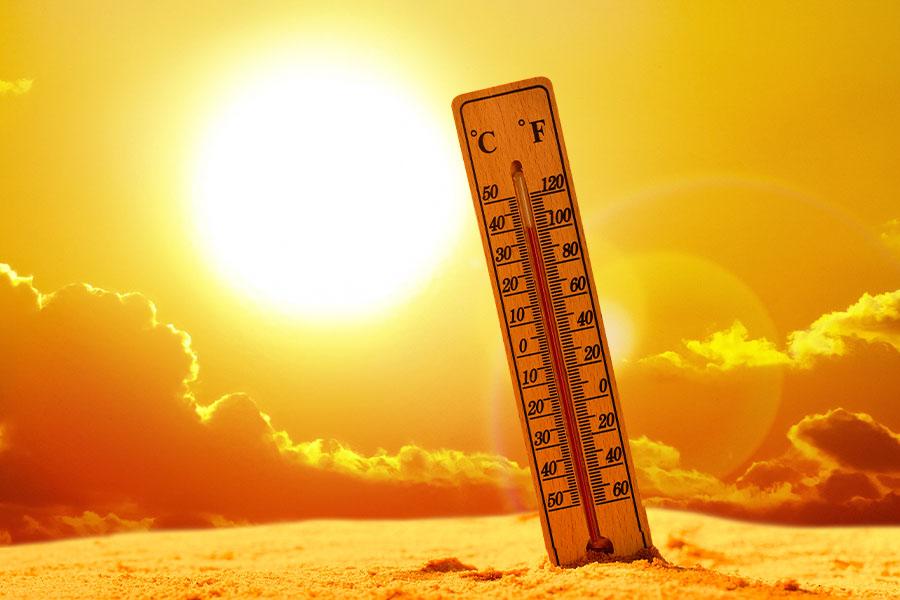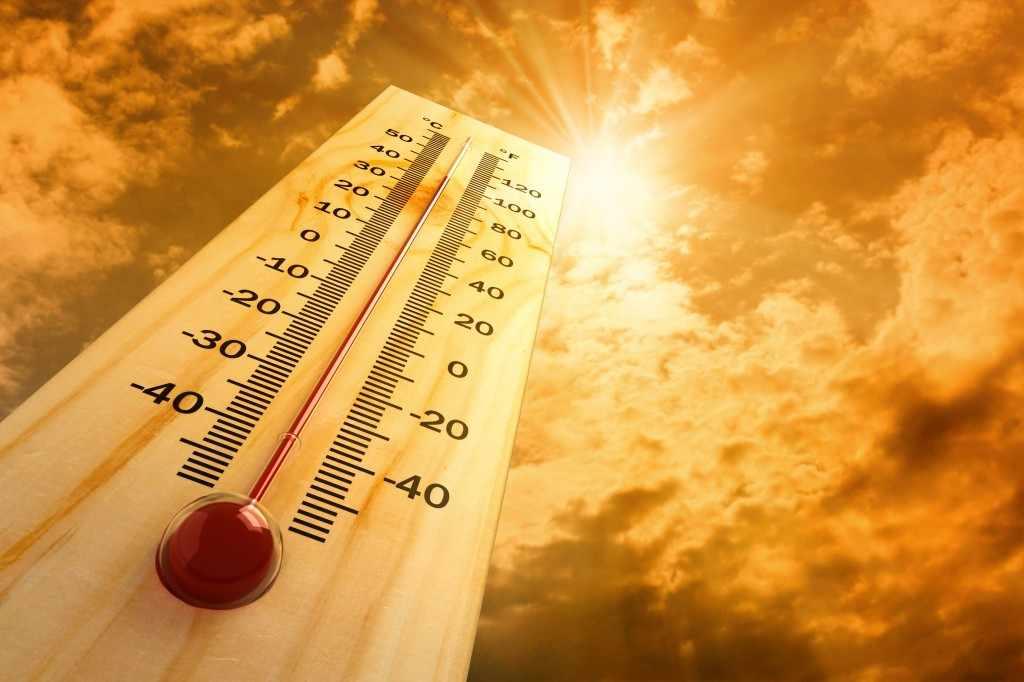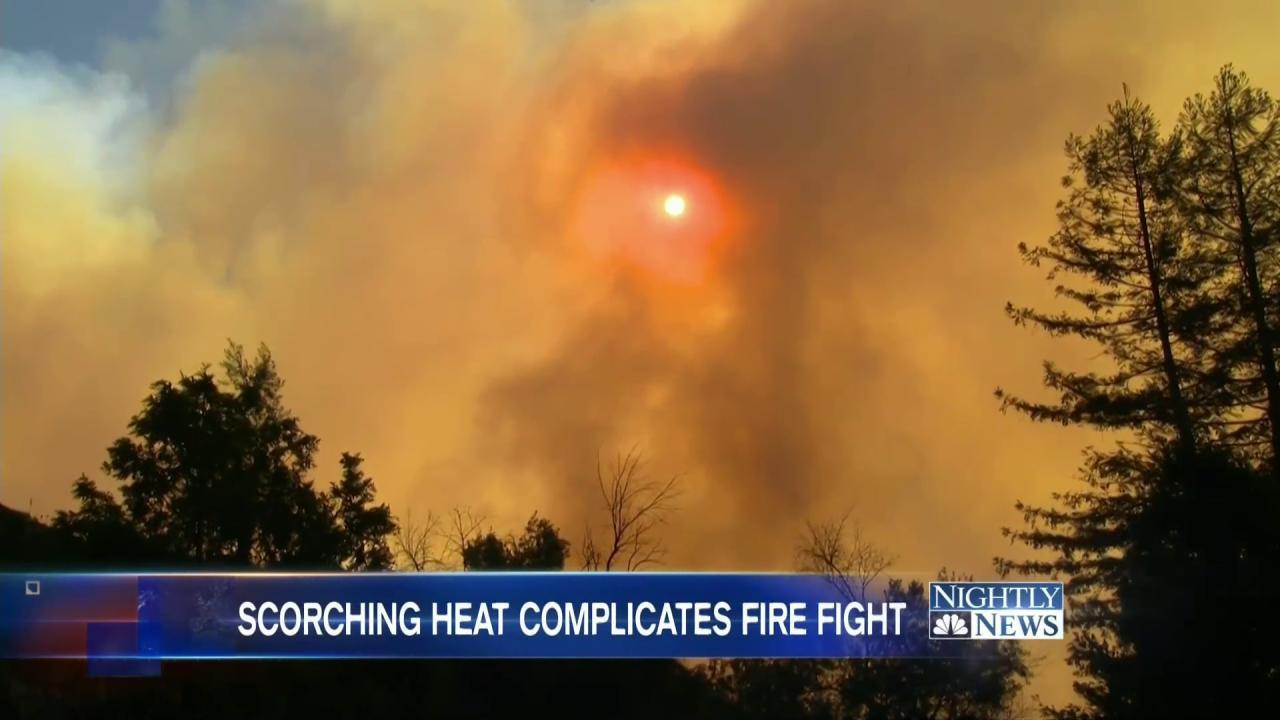Rising Temperatures Trigger Emergency Alerts Across France
The prolonged heatwave currently sweeping across Europe has led to an alarming rise in temperature in France, prompting local authorities to issue emergency alerts in several regions. As thermometers soar above the seasonal averages,the government is taking preemptive measures to protect citizens from potential health risks. In a country unaccustomed to such extremes, officials are mobilizing resources and urging the public to adhere to safety guidelines. The French government has expressed concern that these rising temperatures could lead to a repeat of the devastating heatwave that struck in 2003, during which thousands lost their lives.
In response to the soaring heat, the nation has implemented a series of protective steps, including:
- Launching public awareness campaigns to educate citizens on heat safety and hydration.
- Increasing access to cooling centers for vulnerable populations, especially the elderly and those with pre-existing health conditions.
- adjusting work hours in various sectors to avoid peak heat times and protect outdoor workers.
As temperatures are expected to remain elevated for the foreseeable future, experts warn of potential impacts on public health, agriculture, and infrastructure. Authorities are closely monitoring the situation, anticipating the need for sustained interventions as Europe grapples with the ongoing effects of climate change.

health Risks Amplified by Extreme Heat and Humidity
As Europe sizzles under the grip of unrelenting heat, the health implications of these soaring temperatures are becoming starkly evident. The combination of extreme heat and high humidity can lead to a myriad of health complications, particularly impacting vulnerable populations such as the elderly, children, and those with pre-existing health conditions. Heat-related illnesses are on the rise, including:
- Heat exhaustion: This condition manifests as heavy sweating, weakness, dizziness, and nausea, requiring immediate medical attention to prevent progression.
- Heat stroke: A more severe form of heat illness, where body temperatures can rise to risky levels, leading to potential organ damage and even death.
- Respiratory problems: Elevated temperatures exacerbate air pollution,worsening asthma and other respiratory ailments.
- Dehydration: A crucial risk, especially during extreme weather, as the body loses fluids rapidly.
The psychological toll is also notable; the oppressive heat can elevate stress levels and exacerbate mental health conditions. Furthermore, the risk of cardiovascular events increases, as the heart works harder to cool the body, stressing the circulatory system. Local health authorities are urging citizens to remain vigilant, recommending strategies such as staying hydrated, avoiding outdoor activities during peak heat hours, and recognizing the symptoms of heat stress early. The pressing need for public education and preparedness in the face of these extreme weather patterns is critical to safeguard public health.

Government Response and Preparedness in the Face of Climate Challenges
In response to the extreme heatwaves sweeping across Europe, the French government has implemented a series of proactive measures aimed at safeguarding public health and minimizing the impacts on vulnerable communities. These actions include the activation of heatwave plans, which are designed to assist the elderly, homeless, and those with pre-existing health conditions. Authorities have mobilized resources to ensure access to cooling centers and have launched public awareness campaigns to educate citizens about the risks associated with high temperatures. Key initiatives include:
- Establishment of Cooling Zones: Local governments are designating specific areas in urban settings where individuals can find relief from the blistering heat.
- Health Alerts: Regular updates are being disseminated through various media channels to inform the public about rising temperatures and the importance of hydration.
- Community Outreach: Volunteers and public health officials are reaching out to at-risk populations to offer assistance and ensure that essential services are accessible.
The government’s preparedness also extends to the agricultural sector, where measures are being introduced to mitigate the impacts of drought and heat stress on crops. Farmers are being urged to adopt water-saving technologies and practices, and financial aid is being considered for those who suffer losses due to climate-related phenomena. In addition,environmental agencies are conducting assessments of the ongoing heatwave’s effects on biodiversity and ecosystems,reinforcing the need for sustainable practices to combat climate change in the long term. Through these coordinated efforts, France aims to enhance resilience in the face of increasingly frequent climate challenges.

Practical Tips for individuals to Stay Safe During Heatwaves
The rising temperatures in Europe demand immediate action to protect oneself from the extreme heat conditions. When facing blistering heat, it is crucial for individuals to prioritize their safety by taking practical measures. Here are some essential strategies to stay cool and healthy:
- Stay Hydrated: Drink plenty of water throughout the day, even if you don’t feel thirsty. Avoid alcohol and caffeinated beverages, as they can lead to dehydration.
- Seek Shade: Whenever possible, stay indoors during the hottest parts of the day, typically between 11 a.m. and 4 p.m. If you must go outside, seek shaded areas to minimize direct sun exposure.
- Dress Appropriately: Opt for lightweight, loose-fitting clothing made from breathable materials, such as cotton.Light-colored clothes can help reflect sunlight and keep your body temperature lower.
Additionally, individuals should be aware of the signs of heat-related illnesses and act swiftly if symptoms arise. It’s wise to check on vulnerable individuals, such as the elderly or those with underlying health conditions, who might potentially be more susceptible to heat stress. Consider these actions as part of an effective heat safety plan:
- Monitor the Temperature: Use weather apps or local news to keep track of temperature forecasts and heat advisories.
- Have a Cooling Plan: Identify air-conditioned places nearby,such as shopping malls or community centers,where you can retreat during extreme heat.
- Limit Outdoor Activities: Schedule any necessary outdoor tasks for early morning or late evening when temperatures are cooler.
